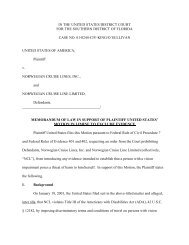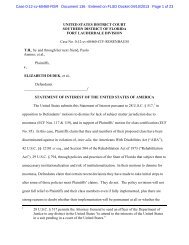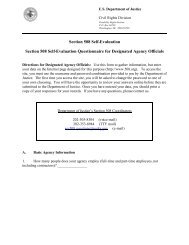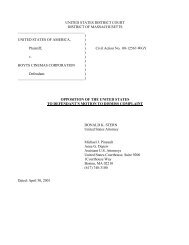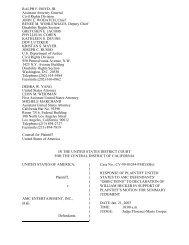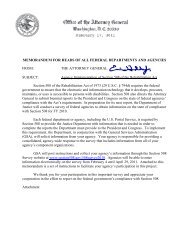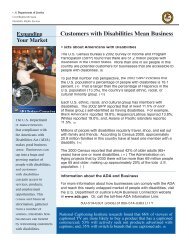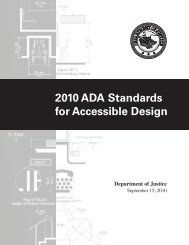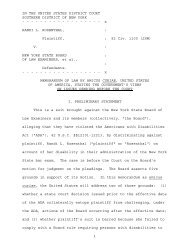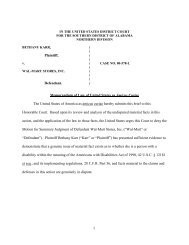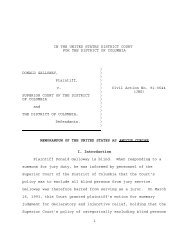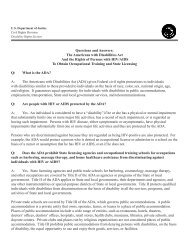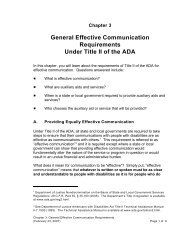US v. Norwegian Cruise Lines, Inc. and Norwegian ... - ADA.gov
US v. Norwegian Cruise Lines, Inc. and Norwegian ... - ADA.gov
US v. Norwegian Cruise Lines, Inc. and Norwegian ... - ADA.gov
You also want an ePaper? Increase the reach of your titles
YUMPU automatically turns print PDFs into web optimized ePapers that Google loves.
interpretations” <strong>and</strong> not facts. Indiana Coal Council, 118 F.R.D. at 267. Because “[t]he Federal Rulesare designed to provide parties access to the latter but not the former,” id. at 267, the requesteddiscovery should be denied.B. Defendants’ Discovery Requests Should Be Denied Because They Seek InformationProtected by PrivilegeAlso outside the scope of discovery, as regulated by Rule 26(b)(1), are materials protected byany evidentiary privilege. See Fed. R. Civ. P. 26(b)(1) (“Parties may obtain discovery regarding anymatter, not privileged, that is relevant to the claim or defense of any party.”) (emphasis added).Defendants seek communications <strong>and</strong> documents protected by at least four established evidentiaryprivileges: the attorney-client privilege, the deliberative process privilege, the attorney work productprivilege, <strong>and</strong> the law enforcement/investigative files privilege.1. Attorney-Client PrivilegeThe attorney-client privilege is the oldest of the privileges for confidential communicationsknown to the common law. Upjohn v. United States, 449 U.S. 383, 389 (1981). It is absolute.Coleman v. American Broad. Cos., <strong>Inc</strong>., 106 F.R.D. 201, 204 (D.D.C. 1985); SEC v. Gulf & W.Indus., <strong>Inc</strong>., 518 F. Supp. 675, 680 (D.D.C. 1981). The purpose of the attorney-client privilege is to"encourage full <strong>and</strong> frank communication between the attorneys <strong>and</strong> their clients <strong>and</strong> thereby promotebroader public interests in the observance of law <strong>and</strong> administration of justice." Upjohn, 449 U.S. at389. The privilege also protects communications from attorneys to their clients if the communications“rely on confidential information obtained from the client.” In re Sealed Case, 737 F.2d 94, 99 (D.C.Cir. 1984). “In the <strong>gov</strong>ernmental context, the ‘client’ may be the agency <strong>and</strong> the attorney may be an7



